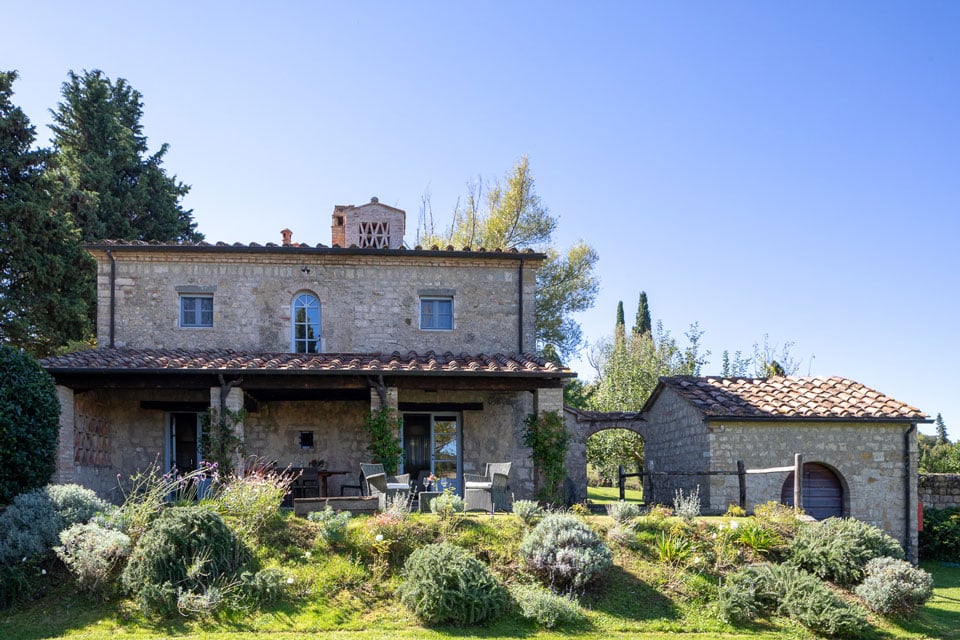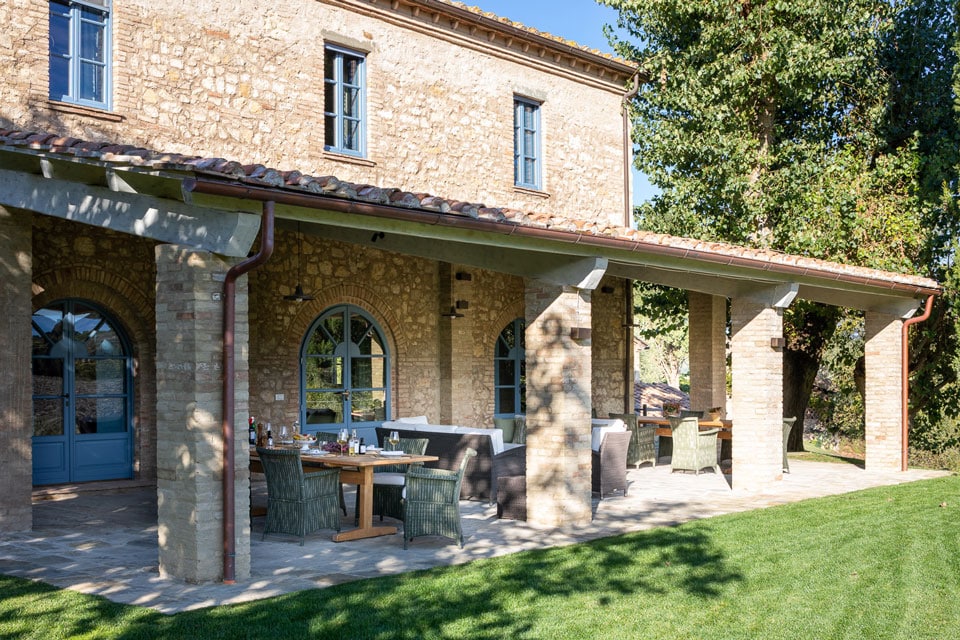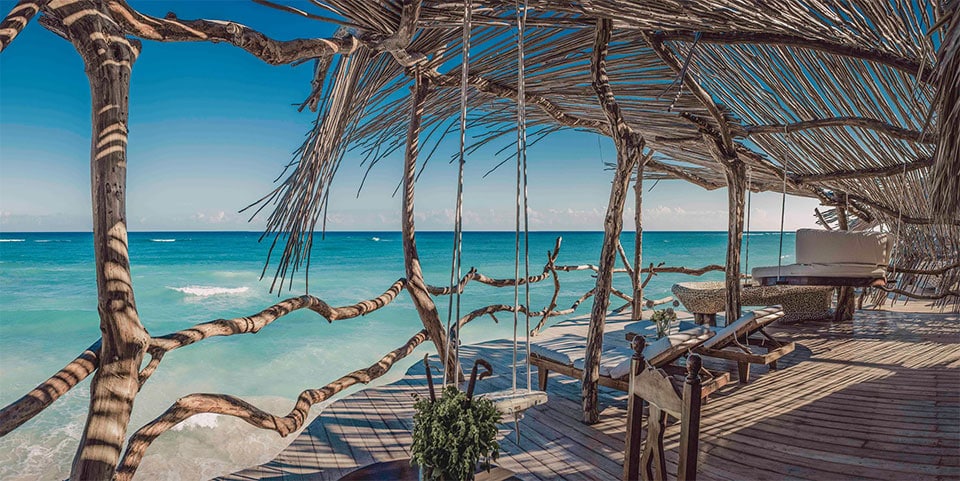Ecotourism And Luxury Living: Visiting The World’s Most Sustainable And Lavish Hotels

With travelers taking to the skies again, as the travel and leisure industry rebound after more than two years of pandemic-induced lockdowns and restrictions, changing consumer trends have led to more travelers hoping to book experiences and excursions that align with their environmental values.
The last few years have seen consumers, businesses, and governments work tirelessly to introduce new regulations that look to protect the environment and promote ecotourism.
A study by Expedia Group Media Solutions found that around 90% of consumers are looking for more sustainable options when traveling. As travelers return, many of them are looking for authentic experiences that are committed to sustainability, whether it’s the hotels they stay in or the airlines they fly with.
Pent-up consumer demand has meant that hotels and resorts around the world are now looking to improve their sustainability-driven goals, as nearly seven in ten consumers claim to avoid destinations or transportation options that have not pledged themselves to follow sustainability practices.
Countries on all levels of economic development are eager for the return of international visitors, but the tourism industry has faced scrutiny in recent years over the impact it has on the broader climate and natural environment. According to a United Nations World Tourism Organization report, the travel industry produces about 5% of all global carbon emissions, making it one of the key industries in the rise and fall of greenhouse gas emissions.
Though changing consumer behavior has meant that many businesses within the tourism industry have had to change up their operations in an effort to support the climate change awareness movement, and align themselves with consumer values.
Albeit greener and more sustainable travel initiatives remain an important milestone for the industry, several hotels and resorts around the world are combining luxury living with ecotourism, becoming a category of travel that’s only accessible to a handful of affluent travelers.
Ecotourism is no small grandeur, and recent figures estimate that the global market is valued at more than $181 billion, and is expected to see parabolic growth in the coming years.
Nouveau riche travelers with deep pockets can now indulge in organically farmed and prepared gastronomic dining, traverse through indigenous habitats in protected reserves, and enjoy exclusive access to some of the world’s most secluded destinations, all while wallowing the eco status quo.
Ecotourism is more than a buzzword – it’s a lifestyle – and whoever said sustainable living can’t be ostentatious has never witnessed how these hotels combine both eco-consciousness and luxuriousness in such perfect harmony.
Svart Eco-Hotel, Norway
The Svart Eco-Hotel, located at the foothills of the Svartisen glacier, which it was named after, is an architectural wonder that is renowned for being the world’s first energy-efficient hotel beyond the Arctic Circle.
Designed in collaboration with Snohetta Architects, Asplan Viak, Arctic Adventures of Norway, and Skanska, the Svart is on a path to becoming a self-sufficient eco-hotel that marries sustainability and comfort to provide guests with a uniquely Norwegian experience like no other.
The hotel hovers above the Holandsfjorden fjord on wooden pillars and has been designed to replicate traditional Norwegian coastal buildings such as fiskehjell and rorbu. The donut shape of the building allows for panoramic views of the fjord, glacier, and mountains, while the complex and its organic farm and water transportation system runs on sustainable energy.
In terms of culinary experience, the hotel has four different restaurants, and a majority of the menu serves meals made from locally sourced ingredients. There are roughly 99 rooms, and a wellness clinic, while recreational activities on land include fjord swimming, glacier tunnel walks, glacier climbing, and deep-sea fishing.
Borgo Pignano, Italy
Down south on continental Europe is Borgo Pignano, a luxury eco-hotel nestled between the valleys of the Tuscan countryside that celebrates the preservation of Italian history and the surrounding environment in the finest way possible.
Though the estate has seen its share of owners and changes throughout the years, as part of the founding members of Beyond Green, a selection of luxury eco-hotels, Bigano Pignano has given thought to the future of luxury sustainable living.
Materials used throughout the hotel were meticulously collected and sourced locally, which gives the 14 available guest rooms a distinct contemporary charm. In some parts of the main villa, a handful of rooms still feature original Italian frescoes, while electricity is generated using a combination of solar power and chip-fired boilers helps to heat water used throughout the hotel.
The villa features an on-site organic farm, and Borgo Pignano’s kitchen uses olive oil, honey, cereal, grains, and flour, among other ingredients that were all grown and produced on-site. To ensure the preservation of the surrounding environment, and to make as minimal impact as possible, several new-age farming techniques have been implemented that make the hotel a self-efficient guest experience like no other.
Tierra Patagonia, Chile
Over in South America, Chilean architects Cazú Zegers, Roberto Benavente, and Rodrigo Ferrer created an eye-catching eco-hotel that was majority built using local natural materials. The fossil-inspired building blends with the natural surroundings, creating a charming, yet sophisticated experience for travelers.
The flow of the building was inspired by the quest to eliminate the need and usage of air conditioning, even during the high and low-temperature months. The sun plays a big role in how the building keeps its warmth, and despite being situated in one of the most brutal landscapes in the world, the building provides a cool and relaxing summer atmosphere due to its unique design.
Other immaculate finishings of the hotel include textiles made from natural materials sourced from the local area, while other furnishings such as the tables and chairs were crafted from wood that is native to the area. In terms of energy consumption, the hotel reduces energy waste by utilizing LED lighting.
On the culinary side, there is a restaurant that uses a blend of traditional and modern Patagonian ingredients that tantalize the taste buds, all of which are located within the hotel and situated in a beautifully designed restaurant. Other amenities include a bar, spa, the Torres del Paine National Park, and more adventurous excursions that can be enjoyed by foot, bike, or boat.
Ulaman Eco Retreat, Bali
Located in the small Balinese village of Kaba Kaba, Ulaman Eco Retreat is an immersive experience with dining and meditation celebrating the local and indigenous cultures in the most luxurious way possible.
Aside from the spectacular architecture, and the majority of the building is crafted to complement its direct environment, the eco-resort is a secluded experience that consists of 14 villas tucked between the rainforests of Bali.
The resort is powered by a hydro turbine system that is fed by a natural waterfall, and most of the fruits and vegetables used in the restaurant are grown and sourced on the premises.
In terms of recreational offerings, Ulaman Eco Retreat strongly focuses on the mind, body, and spirit, offering yoga-shala, and for those who are open to undergoing the Buddhist ritual of melukat. Other options allow guests to take tours off-site, or take part in the hiking trails which are located in nearby rice fields.
The resort has a straightforward offering, yet guests can indulge in some of the world’s most exquisite cuisine and spiritual enrichment all nestled in the heart of Bali.
Azulik, Mexico
A bit off the beaten track, and completely secluded from the rest of the surrounding area, Azulik in Tulum, Mexico is a beautifully designed and sustainably crafted hotel that aims to reconnect guests with natural as natural materials and design elements work interchangeably.
The nonformal approach of the building, and what it has to offer guests breaks the traditional status quo as it looks to form a harmonious connection between eastern and western culture.
The hotel is considered to be an adults-only retreat and includes several restaurants, high-end boutiques, an art gallery, and a clothing-optional beach club right at the base of the hotel. The cuisine is a combination of folklore techniques and far eastern culture crafted with ingredients cultivated from the local area. Azulik has a strong focus on the healing of the mind and the body with traditional ceremonies, a spa, and purification rituals.
An environmentally-friendly ethos is spectacularly celebrated across the retreat, as the 48 villas were all hand-built from local wood. The hotel is also off the grid in terms of communication, as no internet, televisions, or electric lighting is available anywhere on the retreat.
Lapa Rios Resort, Costa Rica
Lapa Rios has quietly become one of the most widely recognized eco-lodges in Latin America, and soon the rest of the world. The resort and its accompanying 17 bungalows are meticulously tucked within Costa Rica’s Osa Peninsula tropical rainforest which overlooks the Pacific Ocean.
Accommodation features an outside shower and terrace that gives guests an uninterrupted connection with the local environment. The resort makes an effort to minimize its direct impact on the surrounding environment, thus its Deluxe Bungalows now have air conditioning, and have been designed to feature open-air architecture that helps to keep rooms cool.
The resort makes an effort to immediately local and cultural experiences, with the main focus to preserve and protect the local and indigenous species that can be found here. There are educational and thought-provoking hikes, bird-watching walks, and sustainability tours exclusively available to guests.
For the most part, Lapa Rios is an exceptional experience that focuses on the protection of the endangered rainforest plains, and guests might be able to encounter some of the country’s rarest species of animals and birds.
A growing interest in ecotourism will see an increasing number of travelers booking holidays and retreats that are primarily focused on sustainability practices, which follow an ethical and ecological ethos. There is still a lot of opportunity for improvement in terms of the tourism industry’s eco-efforts, and in the coming years, we could see wider consumer adoption, not only focussing on luxury living but opening these experiences to every type of traveler.
Written by Jacob Wolinsky.
Have you read?
The World’s Largest Economies, 2022.
International Financial Centers Ranking, 2022.
These are the countries with the Highest Average Salaries, 2022.
Ranked: The World’s 500 Most Populous Cities, 2022.
Countries and territories with the largest population, 2022.
Add CEOWORLD magazine to your Google News feed.
Follow CEOWORLD magazine headlines on: Google News, LinkedIn, Twitter, and Facebook.
Copyright 2024 The CEOWORLD magazine. All rights reserved. This material (and any extract from it) must not be copied, redistributed or placed on any website, without CEOWORLD magazine' prior written consent. For media queries, please contact: info@ceoworld.biz










